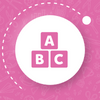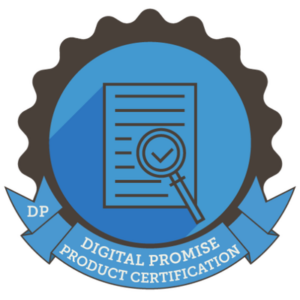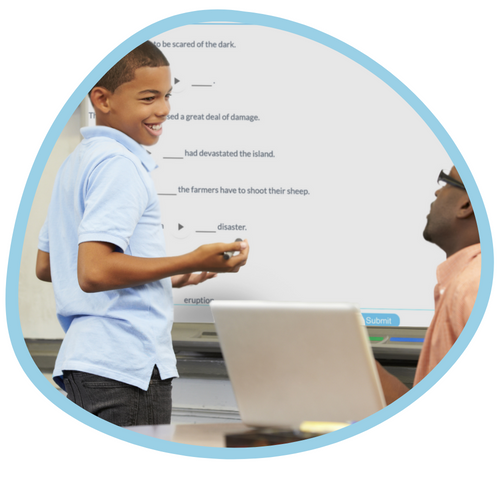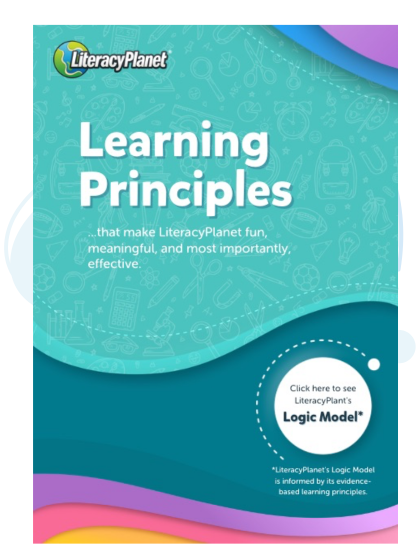Extensive review of the latest science of learning research and evidence-backed pedagogy, user testing via focus groups, and interviews with educators, literacy specialists, and students about their needs and engagement with the platform have informed the development of LiteracyPlanet’s logic model and product roadmap.
Underpinning our logic model are seven evidence-based learning principles.
Personalised Learning
 | Learning that is tailored to each student's needs, interests and motivations.
LiteracyPlanet’s Student Experience personalises the learning journey by determining their starting point with a Literacy Check and then building upon their skills as they work at their own Learning Level (Loble & Hawcroft, 2022). The Student Experience further customises their experience by offering choice, providing feedback on progress and allowing them to learn at their own pace (Friend et al., 2017). Students can also choose when and where they learn, and with My Words and Intrepizine, they can choose what content they want to learn and what they want to do next (Priniski et al., 2017). They can also work on an activity until they have achieved proficiency, before moving onto the next skill, and they can repeat an activity if they so choose. |
Differentiated Instruction
 | Instruction that targets the literacy needs of different learners.
With LiteracyPlanet’s Assign a Task and Custom Word List tools, educators can build upon students' literacy skills at all stages of literacy development. Actionable progress data in the Reporting dashboard enables educators to pinpoint exactly what content will help students progress by meeting them within their own zone of proximal development (Loble & Hawcroft, 2022). Being able to group students by ability, need or interest also enables educators to ensure all students develop their literacy skills (Gormley & McDermott, 2014). Educators can quickly and easily identify where each student needs help, intervention, or extension, leading to a more equitable and engaging learning experience (Major et al., 2021). |
Structured Literacy
 | Systemic, and explicit instruction of foundational to advanced literacy skills.
LiteracyPlanet’s Literacy Continuum scaffolds skill development in a sequential manner - from emergent (i.e. decoding, automaticity and spelling) to proficient (i.e. critical thinking) (Gillon et al., 2019). Educators can use this continuum to build upon each learner’s prior knowledge or take confidence in program-assigned tasks provided in the student’s learning sequence. The program-assigned tasks build upon each student’s literacy skills in an explicit, systematic, and sequential manner. Both teacher-assigned and program-assigned modes ensure continued literacy growth and development, which may help to narrow the learning gap for all students (Global Education Monitoring Report Team, 2023). |
Gamification for Learning
 | Use of game design elements to engage and motivate learners within a compelling learning experience.
LiteracyPlanet uses gamification for learning to encourage, motivate and reward students as they move from one curriculum outcome to the next. By providing learners with granular (i.e. points), sustained (i.e. gems) and cumulative feedback (i.e. achievement scores), students see learning as an opportunity for growth (Qiao et al., 2022). They can “do over” a learning activity, if they wish to improve their achievement score, or until they achieve mastery (Blass & Tolnai, 2019). They can also use My Words to earn more rewards and build their vocabulary. These game mechanics are enablers that increase confidence and determination within an environment that fosters literacy growth (Toda et al., 2019; Sailer & Homner, 2019). |
Meaningful Content
 | Engaging and thought-provoking content that sparks students' curiosity and desire to learn.
LiteracyPlanet’s Storyverse immerses readers in a fictional world that ignites their interest in a compelling narrative that is relatable, engaging and thought-provoking. The Storyverse unfolds as students progress, propelling them on their learning journey and improving their learning outcomes. Through meaningful and memorable stories, students are inspired to connect with their own writing in imaginative and creative ways (Armstrong & Landers, 2017). LiteracyPlanet’s Intrepizine also fosters a life-long love of reading. Its high-interest tiered articles highlight the wonders of life and the world around them, with topics that students find intriguing, illuminating and inspiring. |
Targeted Support
 | Specific, timely, and actionable feedback that helps students reach their learning goals.
LiteracyPlanet helps educators target the individual learning needs of every student in their classroom. The Assign a Task and Custom Word List tools enable educators to quickly and easily build upon what students know and can do, no matter their learning level. Educators can provide explicit instruction on key literacy skills to individual students, groups or the whole class or target student needs by assigning lessons that meet students where they are at in their literacy development. The engaging lessons also provide explicit instruction - an introduction, explanation, and examples - to help students understand the concept or content. Once completed, students receive just-in-time feedback to help them make continued progress. |
Progress Monitoring
 | Data-driven decision-making tools that help educators make informed decisions about instruction.
To help consistently build upon students' literacy skills, LiteracyPlanet’s Reporting dashboard enables educators to quickly and easily identify what students know and can do in each literacy strand, who needs intervention or extension, and where to target their teaching in the classroom. The Reporting dashboard helps educators use data to: inform instructional decisions and groupings; differentiate for individual academic needs; and, intervene and support students who are at risk. The Student and Group Reports help pinpoint student progress at an individual level and at group level. |
Learn more about LiteracyPlanet’s Learning Principles.














